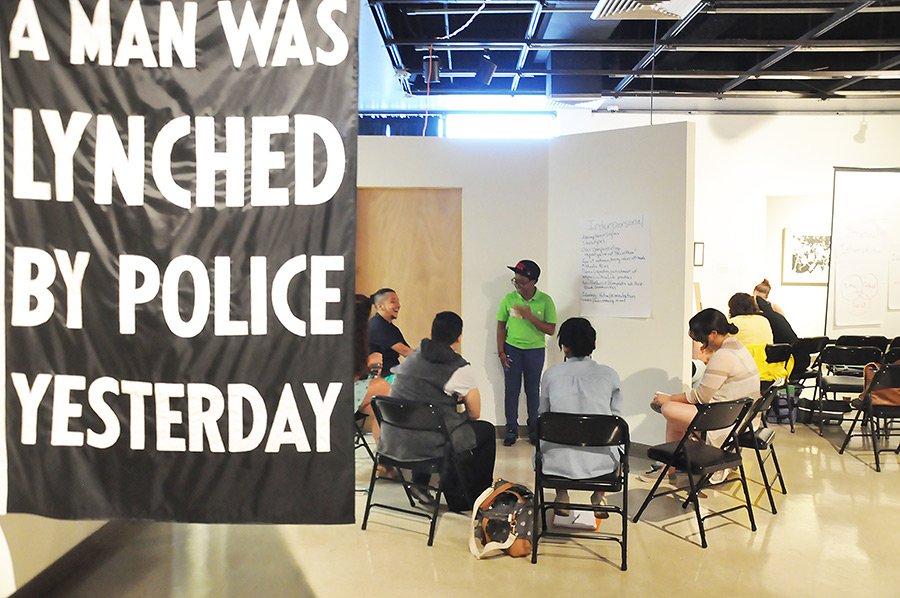More than 150 activists gathered at the African American Museum last weekend for the Queering Racial Justice Institute, a daylong training on ending racial injustice and applying it to the LGBT movement.
The National LGBTQ Task Force hosted the inaugural event as a precursor to Creating Change, an annual traveling national conference for LGBT equality, which will celebrate its 29th year in Philadelphia in January. During the first day of each Creating Change conference, the Task Force coordinates an event dedicated to racial justice. Russell Roybal, the organization’s deputy executive director, said the group wanted to host Queering Racial Justice as a way for the community to have additional dialogue about race issues.
“Whenever we talk about race, there’s a propensity for it to be difficult because race in the United States is something that we try to sweep under the rug,” Roybal said. “But what we’re trying to do at Queering Racial Justice is to have those hard conversations so we can move forward.”
During the opening plenary session, “Queer Freedom as Divestment from Whiteness,” Naomi Christine Leapheart of the United Church of Christ facilitated a discussion with queer leaders of color and white queer allies. This roundtable gave each participant a chance to describe what whiteness meant to them. Leapheart believes whiteness is an “invisible way of ‘being’ in the United States” with non-white people falling in the “other” category. The three plenary participants echoed this statement.
“I think the plenary participants did a good job at talking about whiteness as a material matter [with] access to power [and] access to benefits but also as an idea that takes root when we’re young and continues to grow,” Leapheart said.
The participants also pointed out how whiteness can define queerness. Leapheart said she knows queer people of color who experience tension in queer spaces because they do not fit a “particular aesthetic” or a “particular way of living.”
“[Whiteness] will continue to keep us too narrow in our focus if we’re not centering our perspectives on the lives of queer people of color; of differently abled queer people; of folks who don’t fit the sort of ‘normative’ way of aesthetic,” Leapheart said. “We will forget that there are trans women of color being killed; that there are queer youth of color being kicked out of their homes and engaging in sex work because there’s no other way to stay alive on the street. So I think the danger is that the queer movement will never be complete as long as we don’t center on the lives and perspectives of people of color.”
Elyse Ambrose, 30, attended Queering Racial Justice and said she learned a new way of speaking and how her “voice is needed” in these spaces as a person of color.
“White supremacy strikes a really hard blow on people of color every day,” Ambrose said. “White supremacy strikes a really hard blow on LGBTQ people within the movement every day, and I think there’s a way in which we have to act with that same level of force with which white supremacy tries to oppress us.”
Meanwhile, Alice Goldberg, 24, said she’s aware of the privileges she has and said this is why she is dedicated to going to events like Queering Racial Justice. She said “it helps you grow as a person” to interact with different types of people.
“It was eye-opening to see how many people were entirely embracing being themselves to an extent that I have not experienced before en masse,” Goldberg said. “I loved the event for just being there to observe that. I’m a white cis woman and I feel like I try to fit into these boxes that culture puts us in but, at this event, nobody was doing that and it was incredible to watch that.”
After being unaware of Creating Change prior to Queering Racial Justice, Ambrose and Goldberg said they plan to attend the conference to learn more about racial injustice and LGBTQ issues.
Creating Change will take place Jan. 18-22, 2017, at the Philadelphia Marriott Downtown. Visit www.CreatingChange.org for more information and to register.

